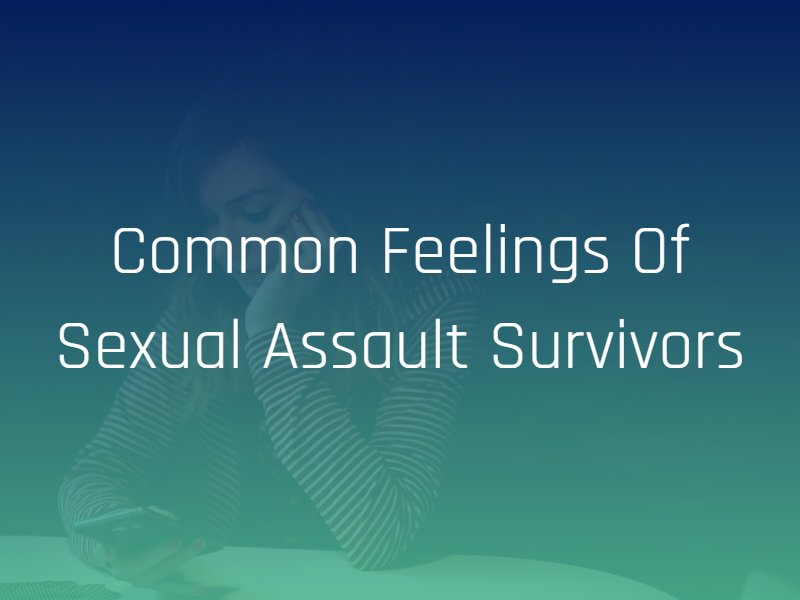Sexual assault is a traumatic experience and can manifest in physical, emotional, and behavioral changes. If you are a survivor of sexual assault, it is important to remember that your emotions are valid and a normal response for the type of trauma you experience. There are certain emotions that many survivors experience when healing from sexual assault.
Guilt and Shame
Many survivors feel shame or guilt after an assault. They may wonder whether they could have done anything to avoid the incident and may even blame themselves for the assault. However, it is important to remember that sexual assault is never the survivor’s fault—the perpetrator is solely responsible for his or her actions.
If you feel guilt or shame after an assault, remember that it is not your fault, and no one deserves to experience sexual violence. Seeking the assistance of a resource center, survivor’s support group, or counselor can help dispel these feelings. You can call the National Sexual Assault Telephone Hotline at 800-656-HOPE (4673) to connect with resources in your area.
Fear and Anxiety
Survivors of sexual assault can experience fear and anxiety for a long time following the act of violence. While they can be difficult to distinguish from one another, these emotions are very distinct. Fear usually involves a specific object that acts as the target of the fear, such as a person, place, or specific situation that triggers memory of the assault. Anxiety, on the other hand, involves a general uneasiness or worry.
After an assault, many triggers may lead to fear and anxiety. In these situations, it’s okay to make the changes you need to feel safe, such as changing your locks or taking a self-defense class. If you find that your fear or anxiety is interfering with your daily life, it may be helpful to speak to a counselor.
Anger
Survivors have many reasons to feel angry after an assault. You may feel angry at the perpetrator and the ways the assault has affected your life. You may also feel angry at the ways your friends, family, or authority figures have reacted to learning about your assault. Anger is a completely valid and healthy response to sexual assault.
While it is important to allow yourself to be angry, it is also important to express that anger without hurting yourself or others. Joining a support group with other survivors can help you learn about ways others have coped with these emotions.
Shock and Numbness
It is also common to not feel any emotions after an assault. You may feel emotionally withdrawn, tired, or unaware of what is happening around you. You may also feel disbelief or deny what happened, repeating to yourself that what happened was not assault. You may also find yourself exhibiting physical symptoms, like unexpected crying.
These feelings are very common and normal reactions to experiencing traumatic events. If you experience shock or numbness, remember that these feelings will diminish over time as you heal. Surrounding yourself with supportive loved ones can also help you cope with these emotions.
Shock, guilt, fear, anger, and anxiety are all common after an assault. If you are a sexual assault survivor, you may also experience many other emotions in the years following the act of violence.
Many resources are available to help you heal and hold the perpetrator accountable. After the assault, contact the National Sexual Assault Hotline at 800-656-HOPE (4673) to find resources near you. Once you receive the help you need, contact a sexual assault attorney to discuss your legal options.

